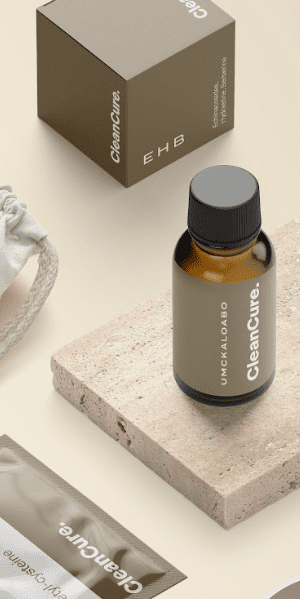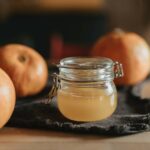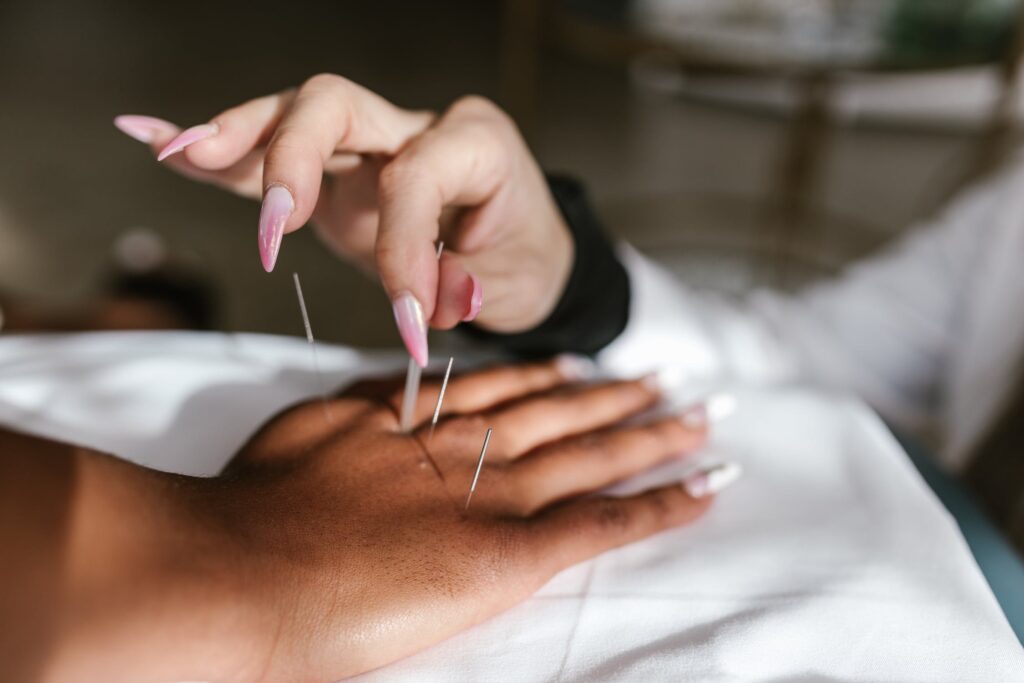
Image Source: RDNE Stock Project
Acupuncture for sinus infections is an alternative treatment that has been used for centuries in traditional Chinese medicine. But does it really work?
Acupuncture for sinusitis can be an effective complementary therapy to conventional treatments. It provides relief by unblocking nasal passages, relieving congestion and pressure, reducing inflammation, and improving drainage.
In this article, we’ll tackle how acupuncture for sinus infections works and how effective it really is.
What is Acupuncture?
Acupuncture is a treatment that involves the use of tiny needles to target specific points on the body related to the sinus cavities. It is a traditional Chinese medicine practice that has been around for thousands of years — most commonly used to relieve allergic rhinitis.
Acupuncture is based on the idea that the body has hundreds of acupuncture points that are connected to different organs and systems. Licensed acupuncturists stimulate and balance the body’s energy flow, also known as qi, by inserting thin, disposable needles into these points.
Acupuncture for Sinus: How It Helps Get Rid of Infections
Sinus infections can be super annoying, causing nasal congestion, sinus headaches, and a runny nose. But did you know that one role of acupuncture is to help get rid of these pesky sinus issues?
It helps the body dissolve phlegm and fight off infection. Acupuncture stimulates the body’s immune system, which helps it combat those nasty bacteria or viruses causing the infection. It’s like giving your immune system a boost!
Acupuncture can also help relieve sinus pressure. If you know the icky feeling when your sinuses feel all clogged up, acupuncture helps to open up the nasal passages and promote drainage, allowing your sinuses to breathe again.
Acupuncture also stimulates movement in your head. This might sound a bit strange, but it’s actually beneficial for relieving sinus issues. By stimulating movement in the head, acupuncture helps decrease inflammation and improve the flow of fluids in the sinuses, making it easier for them to clear out. It also helps you in recovering from sinus surgeries.
How Does Acupuncture For Sinus Infections Work?
If you’re opting for acupuncture treatment, here’s what to expect before, during, and after your acupuncture therapy.
What to do before acupuncture treatment
If you’re considering acupuncture for sinus issues, there are a few things you should know and do before your session. Proper preparation and communication with a licensed acupuncturist can make a big difference in the effectiveness of your treatment.
First and foremost, gather and prepare your medical history. This includes any information about previous sinus infections, allergies, medications, and other relevant health conditions. Providing your acupuncturist with this information will help them better understand your unique situation and tailor the treatment to your needs.
Then, schedule a consultation with a licensed acupuncturist before the actual acupuncture session. This is an opportunity for you to discuss your symptoms, concerns, and any questions you may have. The acupuncturist will evaluate your medical condition and provide personalized advice or a treatment plan on how acupuncture can help alleviate your sinus issues.
During the consultation, make sure to mention any specific symptoms you are experiencing, such as nasal congestion, sinus pressure, or a stuffy nose. This will help the acupuncturist identify the acupuncture points that are most beneficial for your condition.
What to expect during your acupuncture session
During an acupuncture session for sinus issues, fine needles will be inserted into specific points on the body to help restore the flow of qi (pronounced “chee”). Qi is the vital energy that circulates throughout our body. When there is a disruption in the flow of qi, it can lead to various health problems, including sinus infections.
The insertion of these fine acupuncture needles stimulates the release of the body’s natural painkillers, known as endorphins. These endorphins help reduce pain and promote a sense of well-being. Additionally, acupuncture has analgesic and anti-inflammatory properties that can help reduce inflammation in the sinus cavities and alleviate pain.
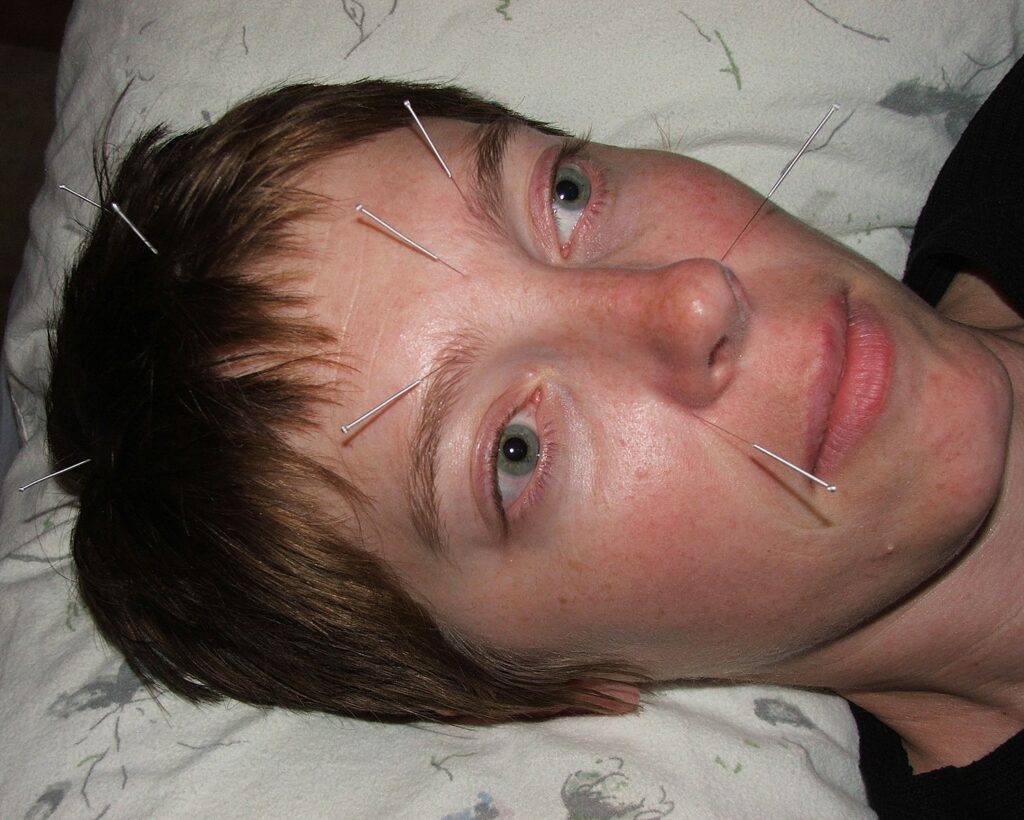
The specific points chosen for the acupuncture treatment will depend on your unique symptoms and condition. For sinus issues, points on the face, head, and neck may be targeted. The licensed acupuncturist will carefully insert the needles into these points, which are connected to the nasal passages and sinus cavities.
During the session, you may feel a slight tingling or dull ache at the needle insertion points. This sensation is normal and often seen as an indication that the energy flow is being stimulated. The needles will be left in place for a specific period, usually around 20 to 30 minutes.
What happens after acupuncture therapy
After undergoing acupuncture therapy for acute or chronic sinusitis, there are a few steps you can take to maximize the benefits of the treatment.
One of the immediate effects you may experience is relief from nasal congestion, sinus pressure, and getting your taste back if ever. You may also notice a decrease in pain levels and an improved quality of life.
Acupuncture Basics For Sinusitis
Sinusitis, also known as a sinus infection, occurs when the sinus cavities become inflamed and swollen. By accessing hundreds of acupuncture points throughout the body, licensed acupuncturists target the underlying issues causing the sinus problems. Here are some of the acupuncture basics that target sinus:
Which acupuncture pressure points target the sinuses?
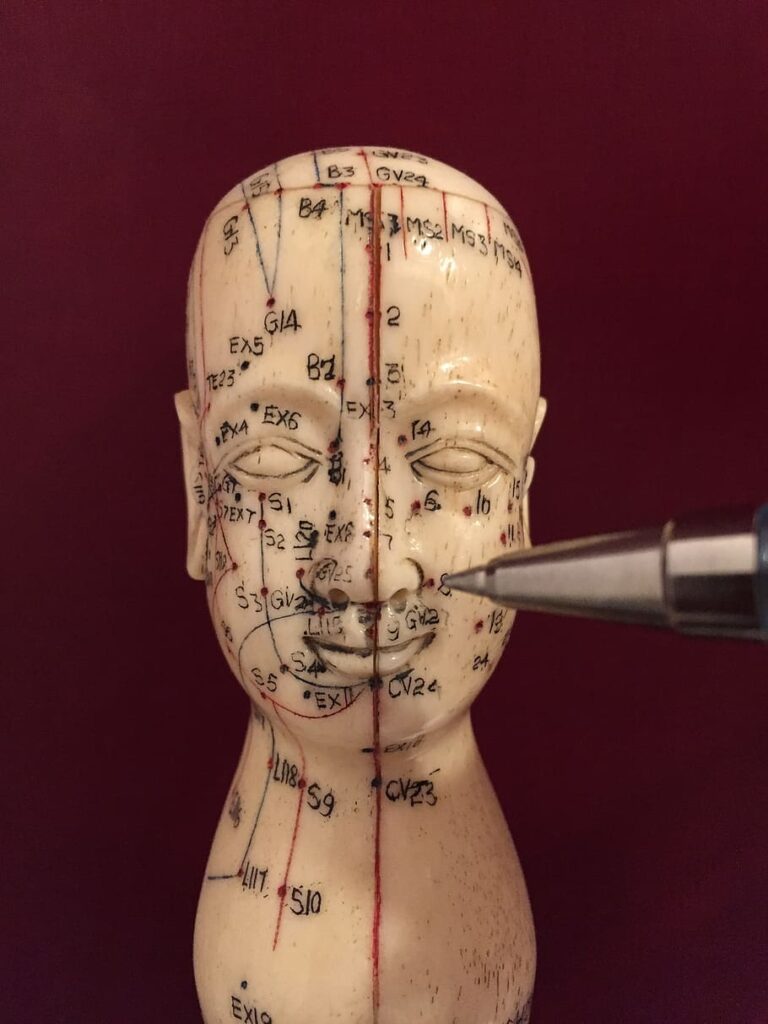
There are several key acupuncture points commonly used to address sinus issues.
- – Bitong (EM7), which is located on the face near the nose. This point is known for its ability to open up the nasal passages and relieve sinus congestion.
- – Yingxiang (LI20), found on either side of the nose. Stimulating this point can help reduce sinus pain and promote healthy sinus function.
- – Hegu (LI4), a point on the hand between the thumb and index finger, is also often targeted in acupuncture sessions for sinus problems. This point can alleviate sinus pressure and headaches.
- – Quchi (LI11), located on the elbow crease, is another helpful acupuncture point for sinus issues. It can help clear nasal congestion and improve overall sinus health.
- – Juliao (ST3), located on the lower part of the cheek, can provide relief from common symptoms and promote healthy sinus function.
Does acupuncture work for sinusitis?
While conventional therapy like nasal sprays and antibiotics are commonly prescribed, some people seek alternative therapies like natural solutions or acupuncture for sinus relief.
Acupuncture for sinusitis aims to open up the nasal passages, reduce sinus pain, relieve sinus pressure, and promote healthy sinus function. While individual results may vary, many people find acupuncture for sinus problems to be a complementary therapy worth trying alongside conventional medical treatments. Thus, acupuncture for sinus infections is considered an alternative therapy that may provide relief for sinusitis symptoms.
If you’re opting for natural treatment, combine acupuncture with HEPA filters, mattress protectors, and other materials that can reduce your allergen exposure.
What does the research say about acupuncture for sinus problems?
Studies suggest that acupuncture may offer benefits for sinus issues. Research has found that specific acupuncture points, such as Bitong (EM7) near the nose, Yingxiang (LI20) on the sides of the nose, Hegu (LI4) between the thumb and index finger, Quchi (LI11) on the elbow crease, and Juliao (ST3) on the lower cheek, can help alleviate symptoms associated with chronic or acute sinusitis, like nasal congestion and sinus pain.
One study examining the effects of acupuncture on allergic rhinitis, a condition that often leads to sinus-related problems, found that acupuncture can improve symptoms and quality of life for those affected. Another review of multiple studies concluded that acupuncture may be a beneficial complementary therapy for chronic rhinitis.
While more research is still needed to fully understand the effects of acupuncture for sinus problems, many individuals report improvements in their symptoms and overall well-being after acupuncture sessions. It’s important to seek treatment from licensed acupuncturists who have received proper training and certification in acupuncture. Safety is also crucial, as disposable needles should be used for each session.
Natural therapies that can assist acupuncture to treat sinusitis
In addition to acupuncture for sinus problems, there are several natural therapies that can help treat sinusitis. These therapies work alongside acupuncture to provide relief and promote healing.
Herbal Medicine
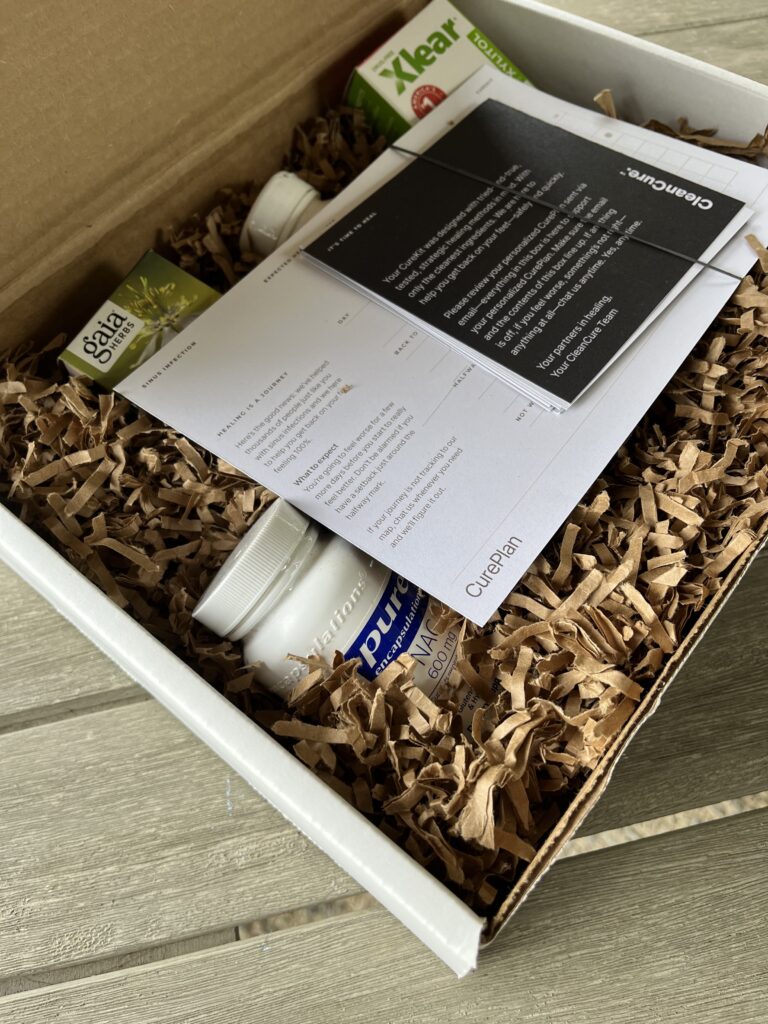
Herbal medicine is also commonly used in conjunction with acupuncture for sinusitis. Certain herbs, like xin yi hua (magnolia flower) and cang er zi (cocklebur fruit), can help clear nasal passages and reduce inflammation. These herbs can be taken as teas or in pill form.
If you prefer a more comprehensive treatment plan for sinus conditions, opt for CleanCure’s Sinus Infection CureKit. Take the natural route with herbal medicines prescribed to you by an actual doctor delivered right in front of your doorstep.
Cupping
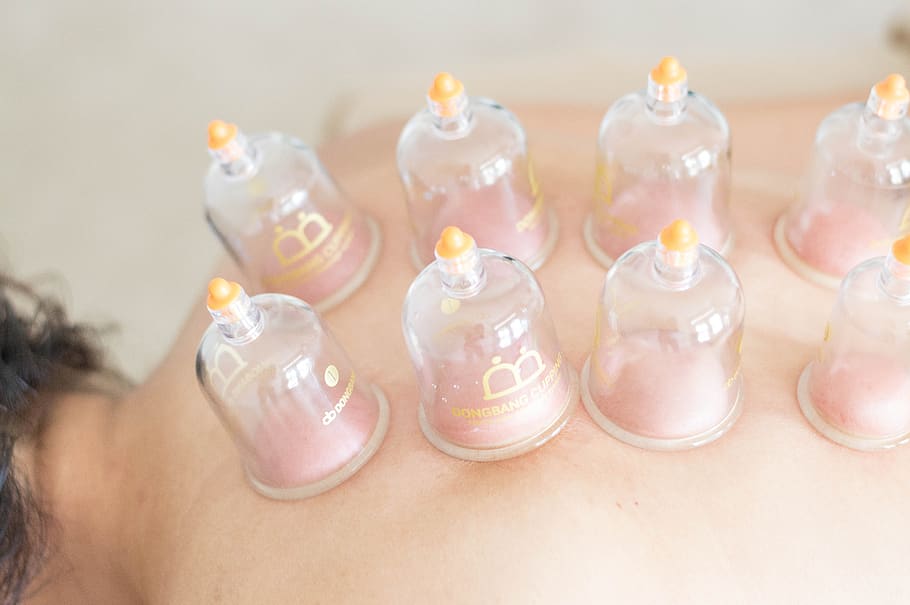
One such therapy is cupping, where heated cups are applied to the skin to create suction. This can help improve circulation and relieve sinus pain and congestion.
Moxibustion
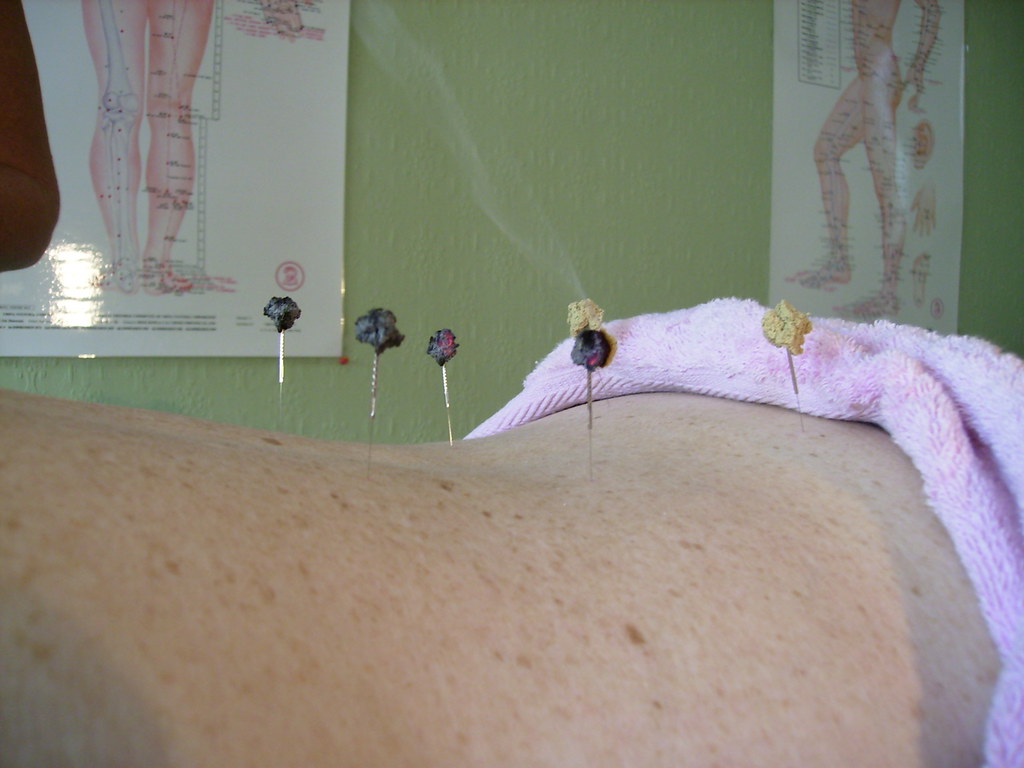
Moxibustion is another technique that involves burning dried herbs near certain acupuncture points. This can help expel pathogens and stimulate healing.
Chinese Massages And Practices
Tuina massage is a type of Chinese therapeutic massage that can help relieve sinus pressure and pain. It involves applying pressure to specific points on the body to promote the flow of qi (energy) and clear blockages. Qigong, a mind-body practice that combines movement, meditation, and breathing exercises, can also help improve circulation and reduce sinus congestion.
Yoga Therapy
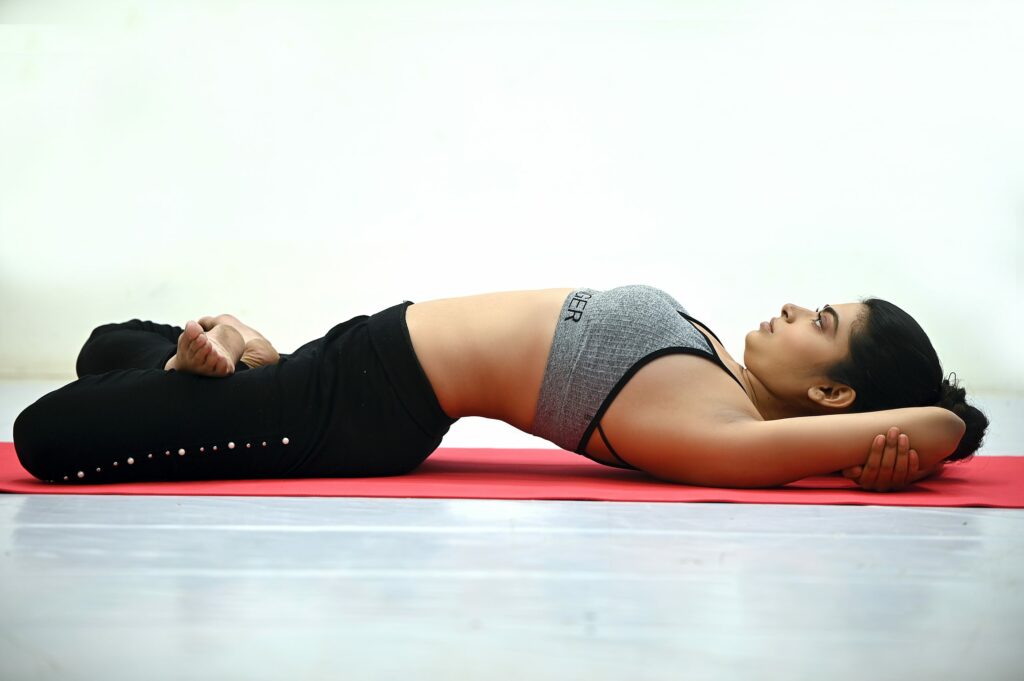
Yoga therapy, incorporating specific poses and breathing exercises, can be beneficial for sinusitis. Certain yoga postures, such as the shoulder stand and fish pose, can help drain the sinuses and alleviate symptoms.
Where And How Can I Try Acupuncture?
If you’re interested in trying acupuncture for sinus infections, there are a few steps you can take to find a qualified acupuncturist. One way is to check the NCCAOM acupuncturist registry. NCCAOM stands for the National Certification Commission for Acupuncture and Oriental Medicine, and they maintain a database of licensed acupuncturists in the United States. Another option is to ask your primary care physician for a referral to a trusted acupuncturist.
Finding a qualified and experienced acupuncturist can make all the difference when trying acupuncture for sinus infections. So, take the time to research and gather information before making your decision. With the right practitioner, you can enjoy the benefits of acupuncture for sinus pain and improve your quality of life even more.
Is Acupuncture Safe?
Acupuncture is generally considered safe when performed by a licensed acupuncturist. So, it’s important to choose a qualified acupuncturist who has spent the necessary hours of training and experience in treating sinus issues with acupuncture to be more at ease and ensure the safety of acupuncture sessions.
Relieve Sinusitis With Acupuncture Today
If you’re looking for a natural and alternative way to find relief from sinus issues, consider trying acupuncture for sinusitis. It may just be the treatment you’ve been searching for to alleviate your nasal congestion, and sinus pain, and improve your quality of life.
So yes, acupuncture for sinus allergies works. And you’ll even enhance the effectiveness of acupuncture for sinus problems if you combine it with other natural therapies, such as herbal medicine like the Sinus Infection CureKit, a comprehensive selection of natural medicine specifically curated for your sinus needs– with the supervision of a real doctor.
